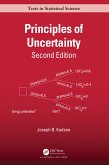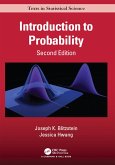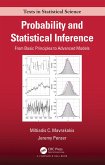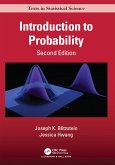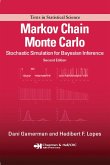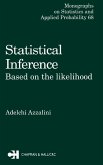Dieser Download kann aus rechtlichen Gründen nur mit Rechnungsadresse in A, B, BG, CY, CZ, D, DK, EW, E, FIN, F, GR, HR, H, IRL, I, LT, L, LR, M, NL, PL, P, R, S, SLO, SK ausgeliefert werden.
- Christian Robert (2021) Principles of Uncertainty (Second Edition), CHANCE, 34:1, 54-55, DOI: 10.1080/09332480.2021.1885939



